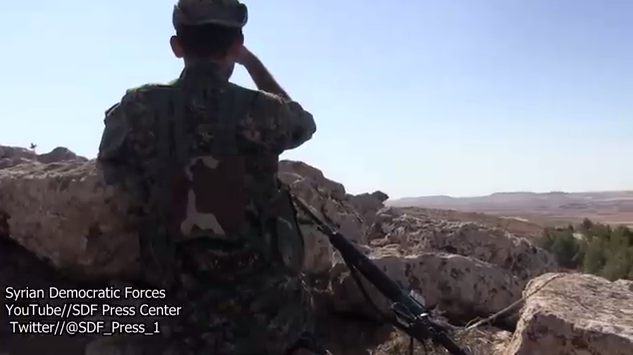A roadmap for civil protection in 2009
(B2) The Council of Foreign Ministers approved, on December 8, a document on “disaster prevention and management” (download here) deeming it necessary to set up an “integrated approach” to develop a “global response to emergency situations”. It thus responds to the Commission's communication of last July. And draws up a real "roadmap" in terms of interventions of
civil protection both inside and outside the EU.
Make no mistake about it. The underlying objective of this "strategy" seems to be to make European civil protection one of the vectors of the Union's foreign policy - in the same way as humanitarian aid, development or civil and military operations. security and defence. Since this policy is often considered as "sovereignty" by several Member States, it is more a question, in the immediate future, of pooling the various means available than of achieving an integrated management of the means (as with the Office of humanitarian aid, ECHO). In a way, we are anticipating the Lisbon Treaty, which strengthens the legal basis for action for civil protection.
We have already been able to see an illustration of this desire, during the August conflict in Georgia, where a small "civil protection" cell of two people, recruited by the European Commission's Monitoring and Information Center (MIC), was deployed, alongside the usual ECHO and ESDP resources, to identify the needs in the country still at war and the coordination of resources. Similarly in India more recently during the Bombay bombings.
Five main priorities can be distinguished in this roadmap. The next meeting is scheduled for December 2009, under the Swedish presidency.
First “priority”: prevention. This “requires bringing together the various policies, instruments and services available to the Community and the Member States, while maintaining a balance between national competences and European solidarity,” the Council considers. The Commission should therefore present, "as soon as possible, at the beginning of 2009", two communications, one on "disaster prevention in the EU" and the other on an EU strategy for "risk reduction disasters in developing countries.
The Council insists in particular on the nuclear, radiological, bacteriological and chemical prevention (NRBC). In June 2009, the Commission must submit a set of proposals, in particular action plans on preparing for these threats. The strengthening of cooperation and the exchange of information, through Europol mechanisms, is also on the agenda.
Second priority: mutual civil protection assistance. The principle here is to develop intervention “modules”, well known to disaster managers. Several modules have thus been created, with the exception of firefighting using helicopters and emergency accommodation. The objective is the full "availability" of the existing modules and to improve their "interoperability" (allowing the operation of national systems side by side), to develop these missing modules, to identify the experts likely to come and reinforce the MIC, to accelerating the deployment of EU assessment and coordination teams.
The Commission is therefore invited to strengthen the MIC, in particular through advance planning (continuous development of scenarios and risk analysis). And even if nothing is mentioned in this document, it is not excluded that the MIC comes to coordinate, closely, with the new direction "management of crises" which could be set up within the Council.
The support of military means to civil protection - "in areas other than transport" - is also mentioned "as a last resort". A delicate subject, this participation is considered with reluctance by certain Member States, particularly in Germany and in certain Nordic countries than in the Latin countries (France, Greece, Italy, etc.).
Third priority: disaster management training. The effectiveness of European interventions depends on training and above all on the capacity for joint training. The Council recommends the “creation of a European disaster management training system”, with two components, the compatibility of national training programs and more “diversified” training possibilities at Community level. Task to be taken care of by the Commission, providing “adequate administrative support”.
Fourth priority: early warning systems. The Council considers it necessary to pursue better collaboration between "the world of forecasting and that of civil protection" even if it notes "tangible" progress, since 2007, on the early warning system, in particular for the calculation model for tsunamis.
Fifth priority: crisis coordination (CCA). This is, on the one hand, to ensure that the Union as a whole is better “prepared in the field of political coordination”. “Relevant” scenarios should be prepared by the EU Council Secretariat. A simulation exercise (CCA FY09) is planned under the Swedish presidency. On the other hand, it is a matter of strengthening consular assistance. The Council wants to “promote the concept of pilot states in the event of a crisis and consular training. The Czech presidency should host a new meeting of the directors of the crisis units of the foreign ministers and continue “the experimentation of the pilot state concept on the ground”. Delicate work! During the bombings in Bombay, coordination was still in its infancy between the Member States, as noted by the Members of Parliament present on the spot (see the letter from Catalan Guardans). And on the side of the ESDP, the 27 had difficulty in agreeing on a common concept of "evacuation" of nationals Europeans.
Finally, the Council recalls the need for critical infrastructure protection, humanitarian aid, and encourages continued cooperation with the Office for the Coordination of
Humanitarian Affairs (OCHA) of the United Nations, particularly in terms of training.
(NGV)
